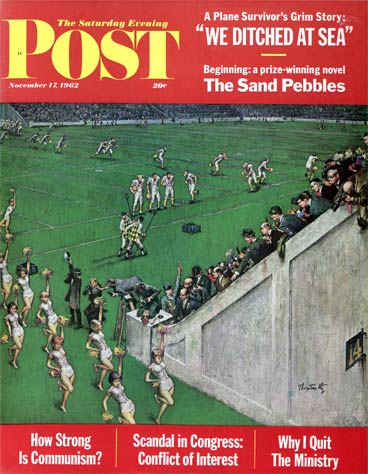50 Years Ago: ‘Don’t Blame Your Parents’

These days, it seems, a growing number of people are encouraged to attribute their parents as the source of their problems.
However, the blame game was well under way 50 years ago when Dr. Vincent Lathbury wrote “Don’t Blame Your Parents” (November 17, 1962) for the Post. His concerns sound surprisingly modern.
Read an excerpt below, or get the full story here.
Excerpted from “Don’t Blame Your Parents” by Dr. Vincent Lathbury:
It is a popular delusion that whatever disasters we make of our lives, our parents are ultimately to blame.
We live today in a restless period where there is little time to establish responsibility, especially our own responsibility. Our political and sociological structures have been established to “do things” for us, to relieve us of responsibility. We want to be cared for, and we want to be secure in the knowledge that our emotional malfunctioning is not of our own making.
While no sinister motivation lies in the modern concept of socialistic paternalism, with all its split-level generosity and wall-to-wall emotional harmony, the fact is that we are being offered a mirage, because responsibility cannot be abdicated. Yet the temptation to blame our parents or society or the Government for our own failures is almost irresistible.
A popular comedian, talking about marriage, exhorts the men in his audience to get married. “Every man needs a wife,” he thunders, “because a lot of things go wrong that can’t be blamed on the Government.” It doesn’t really matter where the blame falls, as long as it falls on someone else.
If an adult does not like the way he feels his parents have made him, then he should make himself over in a more acceptable image; and if he isn’t willing to make the necessary effort, then he should cease blaming his parents.
Regardless of how well or badly our parents prepared us for life, the chances are that they did the best they knew how. Although a reversal of the roles is difficult to imagine, remember that parents were once children too. And they weren’t perfect ones either.
Which calls to mind that quote from Mark Twain: “When I was a boy of 14, my father was so ignorant I could hardly stand to have the old man around. But when I got to be 21, I was astonished by how much he’d learned in seven years.”
